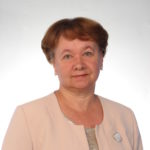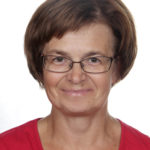The idea behind the «One day, one team, one chapter…» series is to present the four books published in the framework of the ICSEM Project and the Empower-SE Action, Social Enterprise in Asia, Social Enterprise in Latin America, Social Enterprise in Western Europe and Social Enterprise in Central and Eastern Europe, and to introduce the so many incredible people who took part in the crazy “ICSEM adventure”!

A new and emerging field
The book chapter “Challenges for Social Enterprises in Latvia” focuses on explaining social entrepreneurship development, as well as the main difficulties that social enterprises are facing in Latvia, the way in which these initiatives are implemented from a practical point of view, and the current legal framework within which they operate. The authors provide a deep analysis about the beginnings of social entrepreneurship in Latvia as well as a description of the legal and policy context. The main drivers for social enterprises in Latvia—especially public policies and programs, including European Union policies—are analysed and discussed. The authors come to conclusions regarding the main obstacles to the development of social entrepreneurship in Latvia and also provide a mapping and classification of initiatives on the basis of various elements (operations, regions, activity fields, legal forms). They conclude that the concepts of social enterprise and social entrepreneurship are new in Latvia; that the number of social enterprises in the country is still rather small; and that social enterprises may use national and municipal support tools for further development.
The country team: Henrijs, Lolita, Lāsma, Ilze and Marta (Latvia)
The Latvian research team consists of five high-level scientists from various research fields working together in a committed way towards a common research goal. Before the development of the chapter “Challenges for Social Enterprises in Latvia”, all team members were already working together on several other projects and scientific contributions. The research team was professionally led by professors Lolita Vilka and Henrijs Kalkis, but all team members were very satisfied working together and contributed equally, according to their individual working practices and experience. The communication among team members was very effective and work progress met all the deadlines.
The success factor for this effective collaboration was that each team member has a unique experience and research fields, but all team members shared high work ethics, working culture and attitude towards the research results.
Henrijs Kalkis, PhD in Management Sciences, is a professor and leading researcher at the University of Latvia, as well as a co-founder and board member of the Latvian Ergonomics Society. Henrijs is a certified European ergonomist (Eur.Erg.), council member of the International Ergonomics Association (IEA), council member of the Federation of the European Ergonomics Societies (FEES), and council member of the Centre for Registration of European Ergonomists (CREE). He has more than 50 publications in Ergonomics and Business Management journals and 5 books related to research topics. He is also leading and participating in international and local scientific research projects. Henrijs Kalkis has been Fulbright Scholar at the PennState University, USA..
Lolita Vilka, PhD, is an associated professor and the head of the Department of Social Welfare and Social Work at Riga Stradiņš University. Her main area of expertise is social work education and research. Since 2007, Lolita has been a board member of Social Work Collaboration Specialists at the Ministry of Welfare of Latvia. From 2018 till 2021, she participated in the development of professional standards for social workers. She has several publications and reports (approximately 40) on social issues and social work education and practice as well as on social entrepreneurship integration into social work. She has participated in several national and international research projects. In 2020, she participated in the national research program “Life with COVID-19 (CoLife 2020)”, analysing the Covid-19 impact on social services delivery and social work practice.
Lāsma Līcīte-Ķurbe, PhD, is an associate professor and leading researcher at Latvia University of Life Sciences and Technologies. She has been delivering a study course in social entrepreneurship for almost 10 years. She is the author of several publications in social entrepreneurship. In 2018, she developed a research project titled “Social enterprises and their ecosystems in Europe: Country report Latvia”. Within the last years, she has carried out European Union and Interreg research projects about the assessment of legal framework and support for social enterprises in Latvia, as well as social entrepreneurship in Latvia and Lithuania. Lāsma has presented research papers about social entrepreneurship in several international scientific conferences abroad. In 2014, she defended her doctoral thesis “Social Entrepreneurship Development Opportunities in Latvia” and she is the author of the book “Social Entrepreneurship Opportunities in Latvia”.
Ilze Trapenciere, Msc., has worked as a researcher, policy analyst and expert in many international projects (more than 30) on social problems, risks of social exclusion, policy assessment, etc. Besides research and policy analyses, she has served as a member of the accreditation committees on higher education, vocational and general education (2001-2016) and of the National Higher Education Council (2012-2016). She was a Vice Chair of the Standing Committee on Higher Education (HERSC), a member at the Governing Board at CEDEFOP, a national expert at European Commission’s Advisory Committee on Vocational education (ACVT), and a member of EC working groups on Transversal skills, ICT in Education, School policy, delegated by ETUCE. Between 1992 and 2016, she participated in several research projects on youth employment and unemployment, gender perspectives of employment and education, and risks of social exclusion of children. In 2020, she participated in the State Research programme on Covid-19, analysing the impact of Covid-19 on the work of NGOs. In 2021, she participates in the EC project Mutual Learning Service Peer Review on “Furthering quality and accessibility of Foster Care service” (coordinated by DG Employment, Social Affairs and Inclusion).
Marta Urbāne, Ph.D. in law sciences, is an assistant professor at Riga Stradins University and director of the master programme “International business and law”. She is also an attorney at law and certified mediator. Her research interests cover business and labour law and, in this context, also legal challenges for social enterprises in Latvia. Recently, she was part of the research team carrying out the project “Life with COVID-19: Evaluation of overcoming the coronavirus crisis in Latvia and recommendations for societal resilience in the future”, funded by the Latvian Ministry of Education and Science. She strongly believes that social enterprise is the future for the development in Latvia in diverse social groups.
Visit the Routledge website to get information about the “Social Enterprise in Asia” book as well as the full Social Enterprise and Social Innovation series. You can also contact these national researchers to learn more about their work or download the ICSEM Project’s flyer here.






